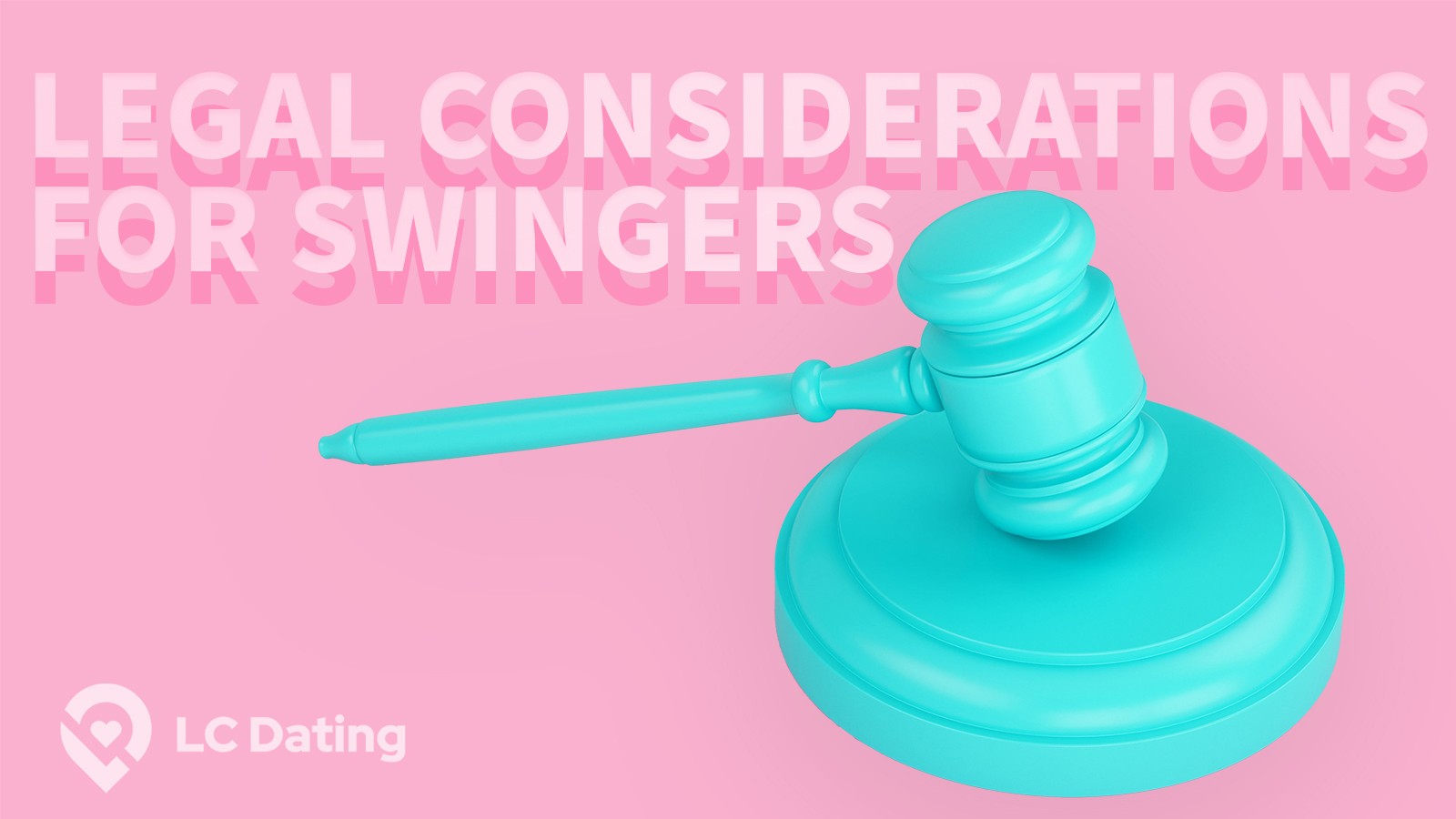Svingimine – üks nõusolekul põhineva mitte-monogaamia vorme – on viimastel aastatel muutunud üha populaarsemaks. Uuringute järgi on hinnanguliselt kuni 4% USA täiskasvanutest mingil hetkel oma elus praktiseerinud nõusolekul põhinevat mitte-monogaamiat. Kuigi svingimine võib pakkuda suuremat seksuaalset rahulolu, intiimsust ja vabadust, kaasnevad sellega ka õiguslikud riskid ja väljakutsed, millega iga svingija peaks teadlikult arvestama. Selles artiklis vaatleme svingijate jaoks olulisi õiguslikke aspekte, võimalikke ohte ning samme, kuidas oma õigusi kaitsta.
Svingimisega seotud õiguslikud riskid
Nagu iga seksuaalse tegevuse puhul, kaasneb ka svingimisega terviseriske, sealhulgas sugulisel teel levivate infektsioonide (STI-de) oht. Seetõttu on turvaseks, regulaarne testimine ja avatud suhtlus partneritega hädavajalikud.
Lisaks terviseriskidele eksisteerivad ka svingimisele omased õiguslikud ohud. Paljud svingijad võivad kogeda diskrimineerimist või eelarvamusi inimeste poolt, kes ei aktsepteeri seda elustiili. Kui svingija eraelu satub avalikkuse ette, võivad tekkida probleemid töökohal, hooldusõiguse vaidlustes või muudes perekonnaõiguslikes küsimustes.
Üks tõsisemaid õiguslikke riske on seotud seadustega, mis kriminaliseerivad abielurikkumise, vallasuse või muu „ebamoraalseks“ peetava seksuaalkäitumise. Mõnes riigis või piirkonnas võivad sellised seadused endiselt kehtida ning svingimisega tegelevad isikud võivad teoreetiliselt sattuda kriminaalvastutuse alla.
Samuti võivad õiguslikud probleemid tekkida avalikes kohtades toimuva tegevuse tõttu. Paljudes riikides on avalik alastiolek ja seksuaalne käitumine keelatud. Svingimine parkides, randades või muudes avalikes kohtades võib kaasa tuua trahve või isegi vahistamise.
Kuidas svingijana oma õigusi kaitsta
Et vähendada õiguslikke riske ja kaitsta oma õigusi, peaksid svingijad olema teadlikud võimalikest ohtudest ning tegutsema läbimõeldult. Siin on mõned praktilised soovitused:
-
Tunne kohalikke seadusi: uuri oma riigi ja piirkonna seadusi, mis puudutavad seksuaalkäitumist, avalikku alastust ja eraelu puutumatust. Teadlikkus aitab vältida olukordi, mis võivad tuua kaasa õiguslikke tagajärgi.
-
Hoia oma privaatsust: diskreetsus on svingimise juures kuldaväärt. Kasuta veebis varjunimesid, väldi äratuntavate fotode jagamist ning ole ettevaatlik, kellele ja kui palju oma elustiilist räägid.
-
Suhtle partneritega avatult: selge ja aus suhtlus aitab vältida arusaamatusi ning emotsionaalseid ja õiguslikke probleeme. Piirid, ootused ja kokkulepped peavad olema kõigile osapooltele selged.
-
Praktiseeri turvaseksi: kondoomide kasutamine, regulaarne STI-testimine ja vastutustundlik käitumine kaitsevad nii tervist kui ka vähendavad võimalikke vaidlusi ja süüdistusi.
-
Konsulteeri juristiga: kui elustiil on aktiivne või tekivad keerulisemad olukorrad (nt lahutus, hooldusõigus, töövaidlused), võib õigusnõustamine aidata paremini mõista oma õigusi ja riske.
Oluline uurimus
Sel teemal väärib eraldi esiletõstmist uuring „Legal issues in consensual non-monogamy: An exploratory study of U.S. attorneys“ (Aviram jt, 2019). Uuring näitas, et paljud juristid ei oma piisavat teadmistepagasit nõusolekul põhineva mitte-monogaamia kohta ning võivad suhtuda sellesse eelarvamustega. See loob svingijatele ja teistele mitte-monogaamsetele paaridele täiendavaid väljakutseid. Autorid rõhutavad vajadust, et õiguseksperdid oleksid paremini informeeritud ning suudaksid pakkuda erapooletut ja professionaalset tuge.
Kokkuvõte
Svingimine pakub vabadust, kirge ja uusi kogemusi, kuid sellega kaasnevad ka õiguslikud riskid, millega ei tasu kergekäeliselt ümber käia. Diskrimineerimine, võimalik kriminaalvastutus ja perekonnaõiguslikud vaidlused on reaalsed ohud, mida saab teadlikkuse ja ettevaatusega vähendada.
Tundes seadusi, hoides privaatsust, suheldes avatult, praktiseerides turvaseksi ja vajadusel õigusabi otsides, saavad svingijad oma õigusi paremini kaitsta ja elustiili muretumalt nautida 😈 Mida teadlikum oled, seda vabamalt saad oma ihasid avastada.

